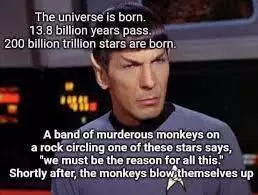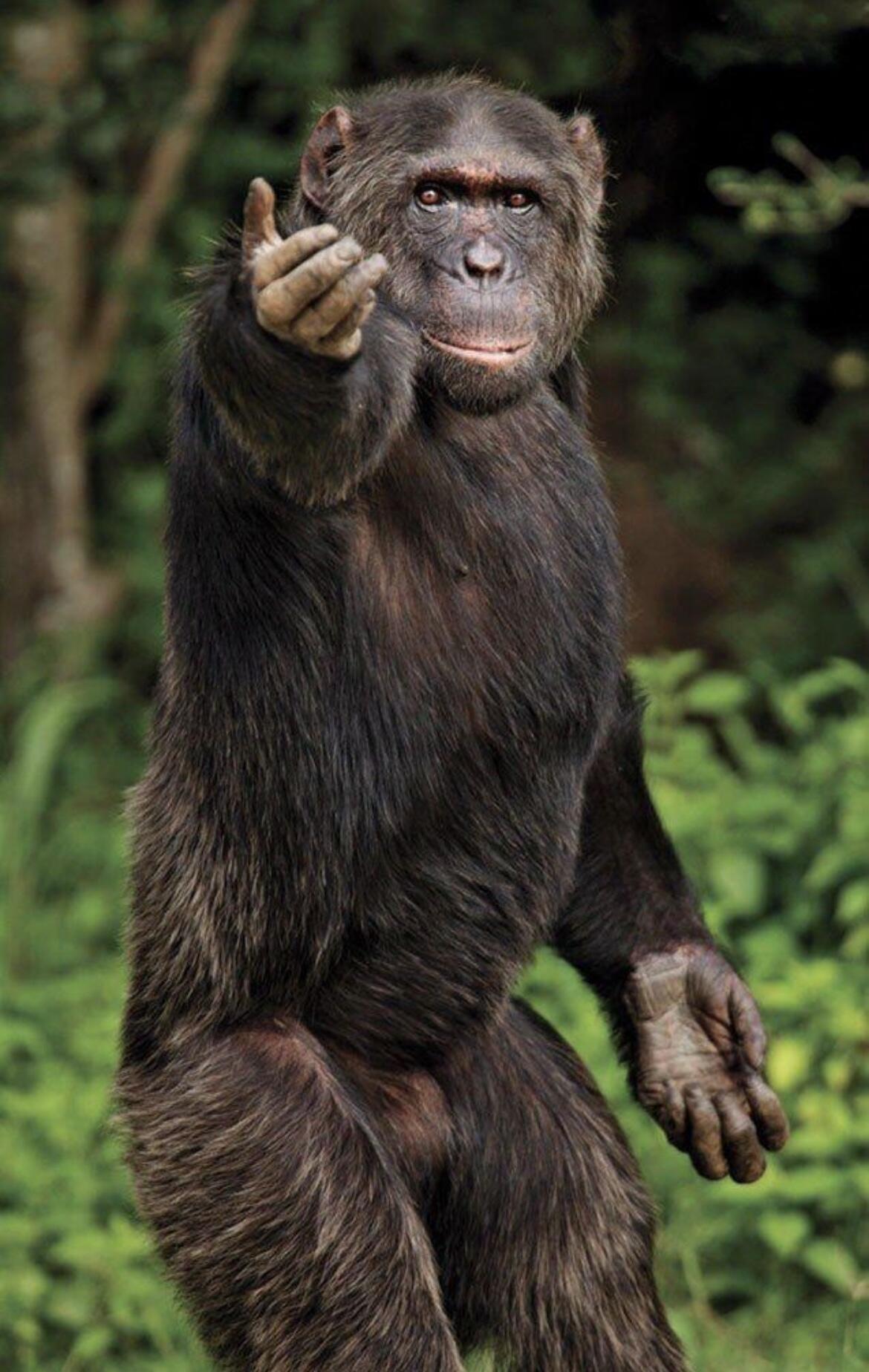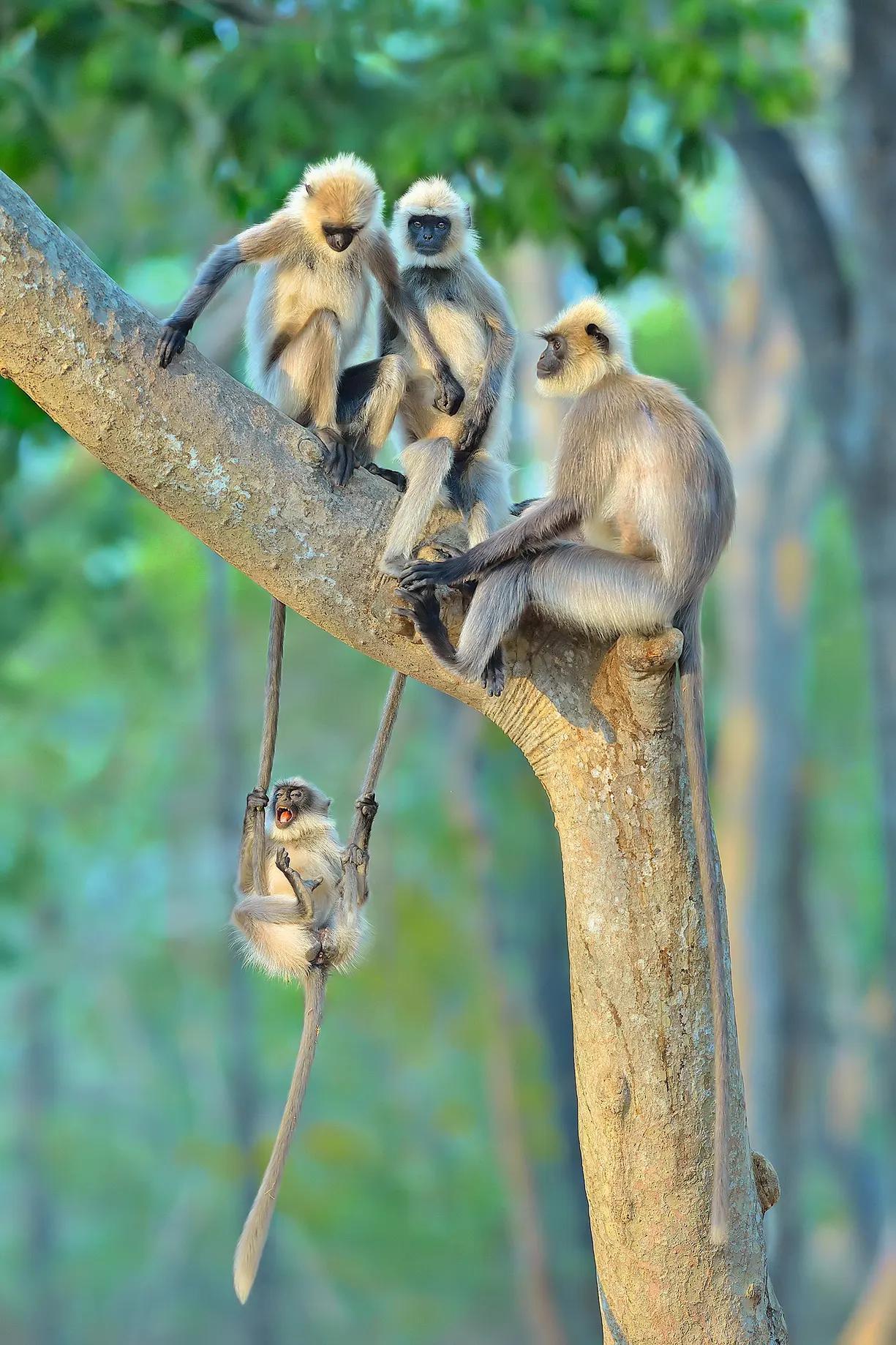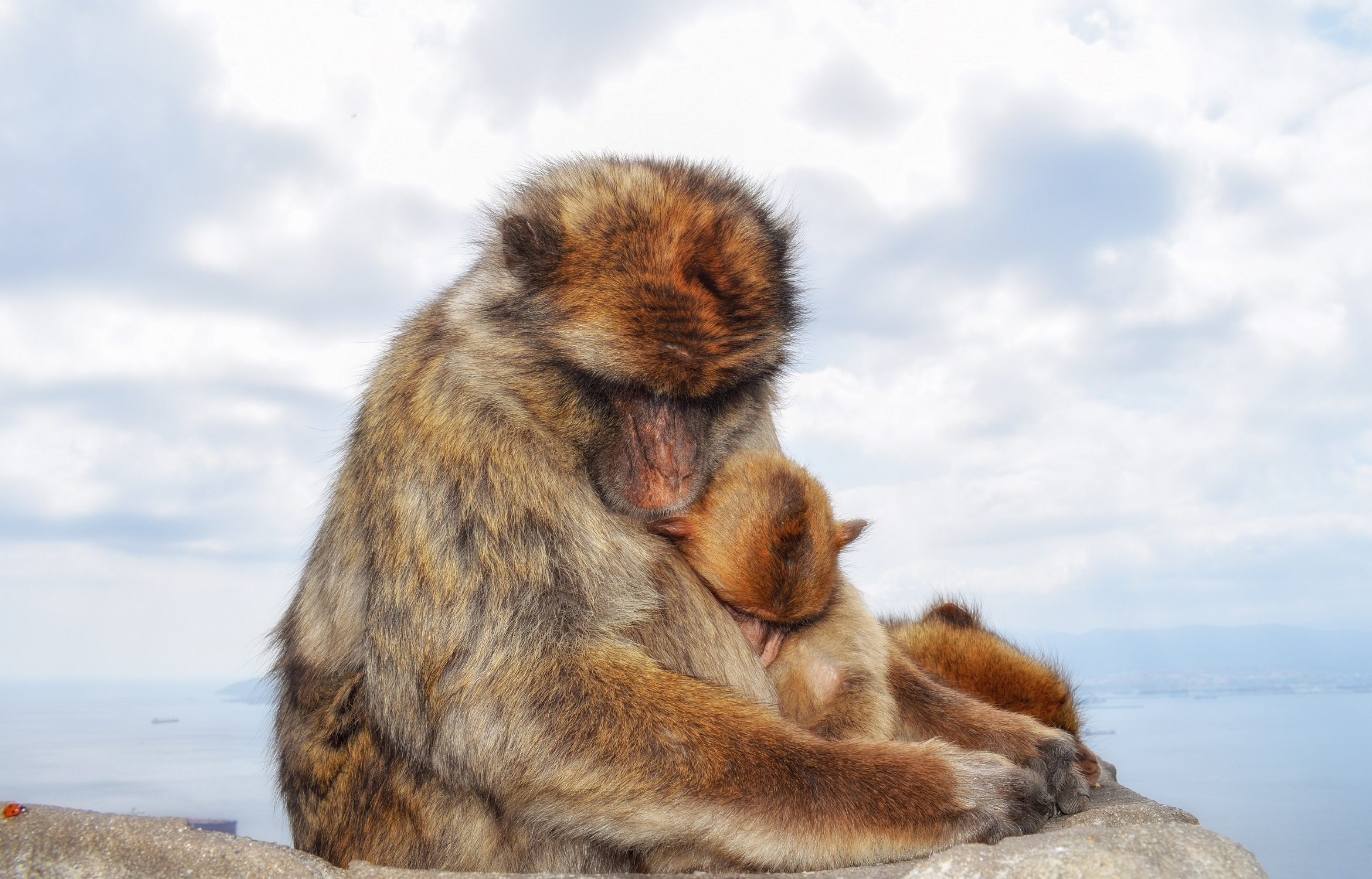#monkeys
An old but still interesting piece about teaching animals to use money. The ultimate success of trickle-down economics ! :P
It took several months of rudimentary repetition to teach the monkeys that these tokens were valuable as a means of exchange for a treat and would be similarly valuable the next day. Having gained that understanding, a capuchin would then be presented with 12 tokens on a tray and have to decide how many to surrender for, say, Jell-O cubes versus grapes. This first step allowed each capuchin to reveal its preferences and to grasp the concept of budgeting.
Then Chen introduced price shocks and wealth shocks. If, for instance, the price of Jell-O fell (two cubes instead of one per token), would the capuchin buy more Jell-O and fewer grapes? The capuchins responded rationally to tests like this -- that is, they responded the way most readers of The Times would respond. In economist-speak, the capuchins adhered to the rules of utility maximization and price theory: when the price of something falls, people tend to buy more of it.
Chen next introduced a pair of gambling games and set out to determine which one the monkeys preferred. In the first game, the capuchin was given one grape and, dependent on a coin flip, either retained the original grape or won a bonus grape. In the second game, the capuchin started out owning the bonus grape and, once again dependent on a coin flip, either kept the two grapes or lost one. These two games are in fact the same gamble, with identical odds, but one is framed as a potential win and the other as a potential loss.
How did the capuchins react? They far preferred to take a gamble on the potential gain than the potential loss. This is not what an economics textbook would predict. The laws of economics state that these two gambles, because they represent such small stakes, should be treated equally.
Eh ? How are those situations the same ? In one, you start with the maximum prize and risk losing half of it. In the other, you start with half the maximum, can't lose it, but can potentially double it. Those aren't the same at all, even if the stakes are so low.
Santos has observed that the monkeys never deliberately save any money, but they do sometimes purloin a token or two during an experiment. Something else happened during that chaotic scene, something that convinced Chen of the monkeys' true grasp of money. Perhaps the most distinguishing characteristic of money, after all, is its fungibility, the fact that it can be used to buy not just food but anything. During the chaos in the monkey cage, Chen saw something out of the corner of his eye that he would later try to play down but in his heart of hearts he knew to be true. What he witnessed was probably the first observed exchange of money for sex in the history of monkeykind. (Further proof that the monkeys truly understood money: the monkey who was paid for sex immediately traded the token in for a grape.)
It’s so #hot in #Mexico that howler #monkeys are falling #dead from the trees
Source: https://apnews.com/article/mexico-heat-wave-howler-monkeys-dying-b99e0570dfb53a2fb7ebe663acecde78
Seen in the context of discussions about #fairness - a study demonstrating perception of 'equal pay'/treatment.
Non-partisan, and apparently non-species specific! Apparently there are basic rights, and one need not be human to want them.
Two Monkeys Were Paid Unequally: Excerpt from Frans de Waal's TED Talk
#equity #monkeys #psychology #sociology #primates #sharing #fairness
The Transnational World of Primate Testing | 101 East Documentary
Across the world, primates are in high demand.Monkeys are used in biomedical labs to develop potentially life-saving drugs for humans.But when China banned e...#101east #101eastaljazeera #101eastdocumentary #AlJazeera #AlJazeeraEnglish #TheTransnationalWorldofPrimateTesting #alJazeera #aljazeera #aljazeera101east #aljazeeraEnglish #aljazeeradocumentary #aljazeeralive #aljazeeravideo #aljazeeraEnglish #aljazeeralatest #aljazeeralive #aljazeeralivenews #animaltesting #latestnews #monkeys #newsheadlines #primates
The Transnational World of Primate Testing | 101 East Documentary
https://www.youtube.com/watch?v=qQe6RJ7-La8
The #monk who feeds the #monkeys living in the #forest surrounding ...
This is beyond disgusting!
This video is from #Danish TV #tv2newsdk where hosts jokingly equate #MAR players hugging their mothers after games with monkeys.
“Because they stick together, they also do that during family reunions in Qatar, in #Morocco” whilst holding up photo of #monkeys.
#Politics #Racism #WorldCup #Denmark #Europe
(twitter link)
https://twitter.com/NimaTavRood/status/1603900017600782337
This was on Danish TV @tv2newsdk where hosts jokingly equate #MAR players hugging their mothers after games with monkeys.
— Nima Tavallaey Roodsari (@NimaTavRood) December 16, 2022
“Because they stick together, they also do that during family reunions in Qatar, in #Morocco” whilst holding up photo of monkeys.pic.twitter.com/ZUv7qstBgl
Apartheid Emerald Mine Space Karen has a new gig: Monkey Vivisectionist

 15 of 23 Monkeys with Elon Musk's Neuralink Brain Chips Died:
15 of 23 Monkeys with Elon Musk's Neuralink Brain Chips Died:
"Pretty much every single monkey that had had implants put in their head suffered from debilitating health effects," said the PCRM's research advocacy director Jeremy Beckham. "They were, frankly, maiming and killing the animals."
Neuralink chips were implanted by drilling holes into the monkeys' skulls. One primate developed a bloody skin infection and had to be euthanized. Another was discovered missing fingers and toes, "possibly from self-mutilation or some other unspecified trauma," and had to be put down. A third began uncontrollably vomiting shortly after surgery, and days later "appeared to collapse from exhaustion/fatigue." An autopsy revealed the animal suffered from a brain hemorrhage.
The PCRM filed a complaint with the the US Department of Agriculture on Thursday, accusing UC Davis and Neuralink of nine violations of the Animal Welfare Act. "Many, if not all, of the monkeys experienced extreme suffering as a result of inadequate animal care and the highly invasive experimental head implants during the experiments, which were performed in pursuit of developing what Neuralink and Elon Musk have publicly described as a 'brain-machine interface,'" the group wrote in the complaint. [...]
Musk said in December that Neuralink hoped to start human testing this year.
Previously, previously, previously, previously, previously.
#uncategorized #computers #doomed #madscience #monkeys #parts #tasp










